Taking on the Scots at their own game: The rise of Yorkshire whisky
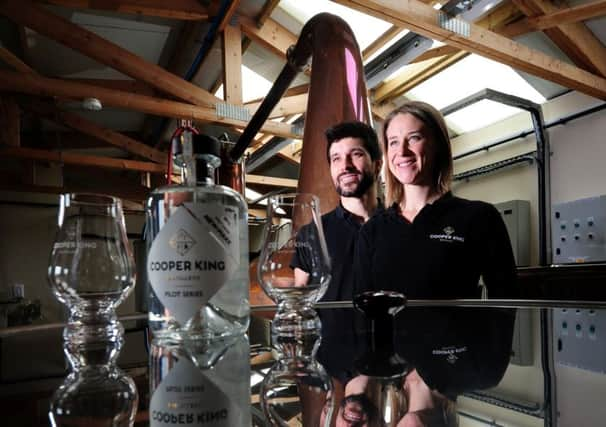

When the Spirit of Yorkshire’s Filey Bay whisky was launched last Saturday it was the culmination of more than eight years of hard work and planning.
Unlike the explosion of Yorkshire gin in the last few years, making malt whisky is a much slower process – the spirit has to spend a minimum of three years in the cask before it can even be called malt whisky.
Advertisement
Hide AdAdvertisement
Hide AdThe number of gin distilleries has grown to 45 in Yorkshire in the last few years. But now it is the turn of whisky.
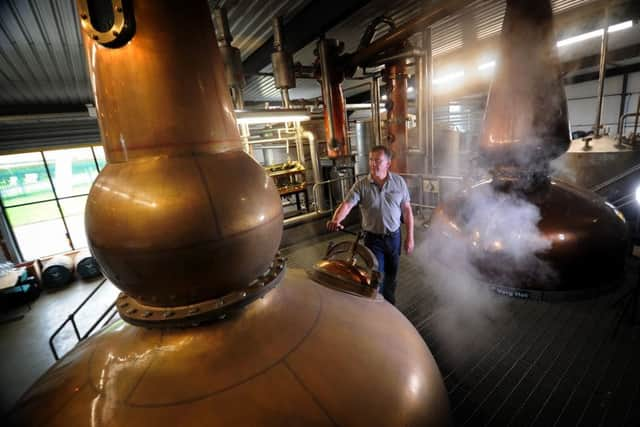

Yorkshire can currently boast three whisky distilleries, all at different stages of creating their signature single malts and with their own reasons for embarking on what is truly a labour of love.
First to hit the shelves is Spirit of Yorkshire’s Filey Bay single malt whisky which was launched across at the Hunmanby distillery on the county’s coast – hence the name.
It is the brainchild of friends, and now business partners, David Thompson and Tom Mellor, the farmer behind the award-winning Wold Top Brewery.
Advertisement
Hide AdAdvertisement
Hide Ad“Whisky is distilled beer,” explains Thompson. “The barley is grown on the farm here, goes to the malting factory near Bridlington, we then make the mash and then it is distilled twice and put into casks and water added. Ours is one of just a handful of whiskies that can really claim to be from field to bottle and Yorkshire through and through. Even our bespoke bottle is made in Yorkshire by Allied Glass.
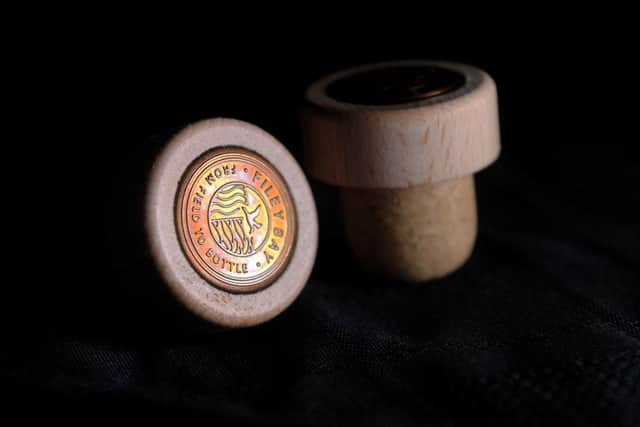

Unlike the other two Yorkshire distilleries, Spirit of Yorkshire only makes whisky – an estimated 300,000 bottles a year making it one of the biggest whisky makers in England. It boasts two copper stills, the largest outside of Scotland, all under the eagle eye of whisky director Joe Clarke and employs some 35 people.
“As well as this, our production allows us to create two different spirit styles, using a pot and column still configuration to create a flavour profile that is unlike any other malt whisky.”
Unlike gin that can be made quickly, malt whisky requires a far lengthier process and demands a lot of patience and skill to ensure the end product is of a superior quality.
Advertisement
Hide AdAdvertisement
Hide AdHowever, over the last couple of years Thompson and Mellor have released a limited number of bottles of their ‘‘maturing malt’’ which does exactly what it says on the tin and has given some insight into what the finished product will be like.
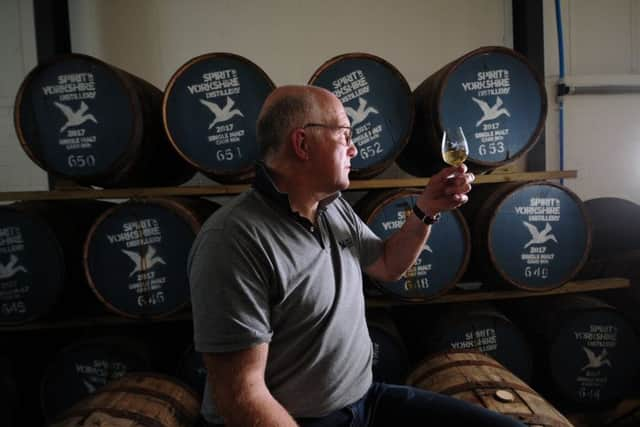

To further ignite interest in the brand and keep the money coming in, Spirit of Yorkshire has held tours of the distillery for the last few years and sold 200 casks to private buyers.
The only thing Thompson says he regrets is that their adviser, whisky expert Dr Jim Swann, died before he saw the fruition of their labours.
Making malt whisky outside of Scotland means they are not bound by the strict rules of the Scottish Distilling Association.
Advertisement
Hide AdAdvertisement
Hide Ad“It means we can do things our own way to some extent, while keeping many of the traditions,” says Thompson, who is determined that Yorkshire single malt whisky maintains its quality. To that end, he says they are happy to share their experiences with the up and coming whisky distilleries in the county.
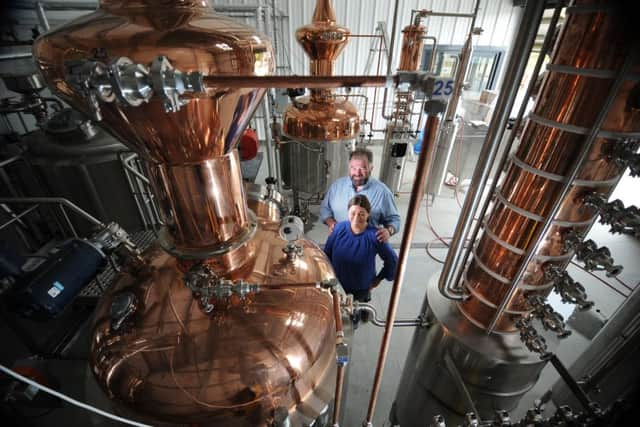

About an hour down the road heading towards York is Cooper King Distillery. Best known for its gin and collaborations with restaurants such as the Black Swan at Oldstead, Roots and Skosh in York, owners Abbie Neilson and Chris Jaume originally set out to make whisky.
Neilson, a scientist, and Jaume, an architect, met at Newcastle University and decided to quit their jobs to travel in a bid to get inspiration for a business they could run together. Whisky drinkers themselves, it was while travelling in Tasmania that the young couple became fascinated by the country’s eight operational whisky distilleries.
“We thought if they can create something so amazing in Tasmania why can’t we do it in England?” explains Neilson.
Advertisement
Hide AdAdvertisement
Hide AdThey spent time learning from the Tasmanian distillers before heading back to England and spending two years researching and creating a business plan. Neilson also embarked on a distilling course.
They eventually took up Neilson’s father’s offer of converting a former stables on land owned by her grandmother, in Sutton on the Forest near York where she grew up.
“We spent the deposit we’d saved to buy our first home together, but that only covered the driveway,” says Jaume, whose great great grandfather Charles Cooper King inspired the name for the distillery and even the coat of arms on its label. So they reached out to potential investors to enable them to build the distillery with the green credentials they were passionate about.
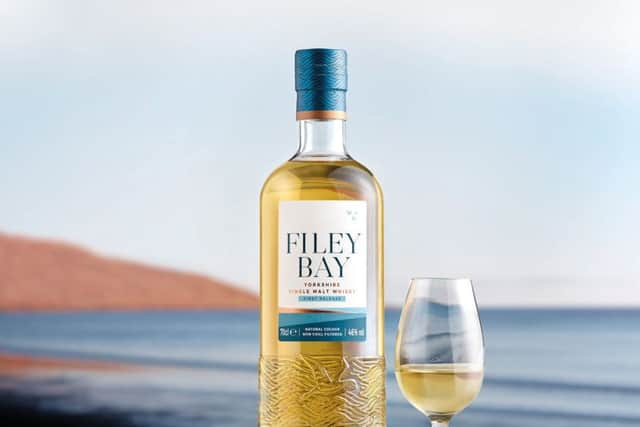

It enabled them to finish their distillery, order their specially-shaped still from Tasmania and other equipment they needed.
Advertisement
Hide AdAdvertisement
Hide AdBy that time, it was 2016 and the gin revival was in full swing. “We never intended to make gin. But people kept asking for it and so we thought why not?” They started producing their gin in May last year using honey from Neilson’s dad’s bees and lavender from a nearby farm. They admit the gin business did distract them from their initial intention. “We are a little behind where we had planned to be but whisky is all about patience,” says Neilson.
But they are well on their way. Last month the distilled spirit was put into oak casks where it will stay for three to five years. Cooper King aims to make 6,500 bottles of single malt whisky a year.
New kid on the block when it comes to whisky is Toby Whittaker, already well known for his range of Whittaker’s London dry gins made in a former stable block on his farm near Dacre, Harrogate since 2016.
Whittaker originally set out to make beer and way back in 2009 he and wife Jane got planning permission to create a microbrewery.
Advertisement
Hide AdAdvertisement
Hide AdHowever, a brewing and distilling course at Heriot Watt University in Scotland led him in a completely different direction.
“I met craft distillers who were making gin while their whisky distilled and it got us thinking – why couldn’t we do that in England?”
They have successfully tackled the gin making side of things but at the back of Whittaker’s mind was a burning desire to make Yorkshire whisky.
He obtained a European grant and this summer saw the opening of the new whisky distillery, tasting room and coffee shop. Now the shiny new stills are in place, Whittaker expects to start the first process of making his whisky any day now.
Advertisement
Hide AdAdvertisement
Hide Ad“It’s a new challenge and quite a daunting prospect,” he admits. “We have had lots of help and support from the guys at Spirit of Yorkshire. Everyone has been so supportive.”
It will be at least three years until they have an actual whisky bottled and ready to sell and they know they still have a long way to go and a lot to learn. But they are determined that a Whittaker’s single malt will be worth the wait. They plan to make around 15,000 to 20,000 bottles a year.
“We want to make single malt whisky that is accessible to more people. It’s an exciting time for craft spirits,” says Whittaker, who doesn’t believe there will the explosion in Yorkshire whisky distilling that there has been in gin.
“There are a lot of people have jumped on the gin band wagon, some good some not so good, but with whisky the time, effort and money you have to invest before you see any return means you really have to be committed to creating a quality product.”